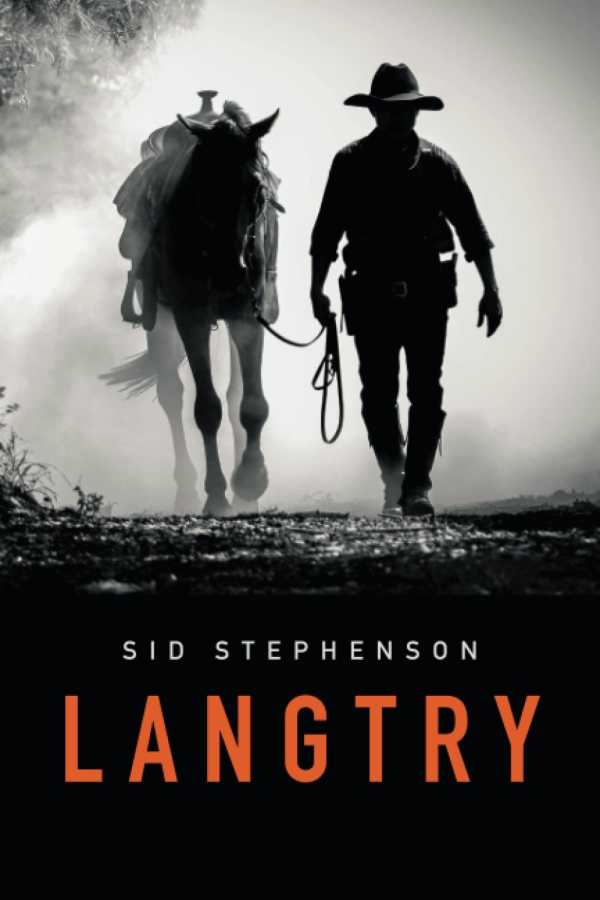Langtry
In the contemplative Western novel Langtry, men in the still-untamed desert cling to their remaining independence.
In Sid Stephenson’s sprawling Western novel Langtry, a violent showdown leads to a bloody quest for retribution.
In the closing years of the nineteenth century, Lee, who’s resting by a fire, is approached by a smooth-talking cattleman, Matthew, and his men. Though Lee senses danger, he’s hospitable. But the men circle him, forcing him into action. Shots are fired; a man is left dead; Lee disappears into the desert. Matthew sends a posse after Lee and throws every ounce of his power, wealth, and thirst for revenge into destroying those who stand against him. The desert landscape may seem a lawless place; still, Matthew’s actions draw the ire of a judge who runs his courtroom out of a saloon.
The story is told through a blend of narrative prose and screenplay formatting. Much of the exposition comes through conversations that are supplemented by parenthetical descriptions. However, these sections are flat; most of the speakers sound alike, and their language is often awkward. The book’s prose sections are stronger; their lengthy descriptions hold attention and proffer memorable sequences, as when Lee sets up camp after traversing a stretch of inhospitable desert, and when he waters his tired horse from a worn-out hat. Rich sensory details and lyrical tones arise in such moments. Still, this verbosity is somewhat at odds with the lawless, wild scenery that it illuminates.
Matthew’s drive to right his perceived wrong anchors the story; his tireless pursuit of Lee and anyone who stands in his way drives it forward. He’s constructed as an easy villain; at his opposite, Lee is an affable hero. As he works to escape Matthew’s posse and wrath, he is engaging. But the rest of the cast is less dimensional; many people share traits and mannerisms, making them feel interchangeable. And as the book moves toward Matthew’s final planned act of retribution, its scenes become repetitive. He follows a circuitous route to avoid the law, and he continues to spill blood. The book’s climactic showdown represents a loose opportunity toward moral justice, but it’s a heavy-handed scene: Matthew is made to personify the town itself; he recognizes that the industrialization of the nation will shift his way of life forever.
In the contemplative Western novel Langtry, men in the desert cling to their independence, even as the Industrial Revolution, railroads, and law and order encroach on their dusty territory.
Reviewed by
John M. Murray
Disclosure: This article is not an endorsement, but a review. The publisher of this book provided free copies of the book and paid a small fee to have their book reviewed by a professional reviewer. Foreword Reviews and Clarion Reviews make no guarantee that the publisher will receive a positive review. Foreword Magazine, Inc. is disclosing this in accordance with the Federal Trade Commission’s 16 CFR, Part 255.

